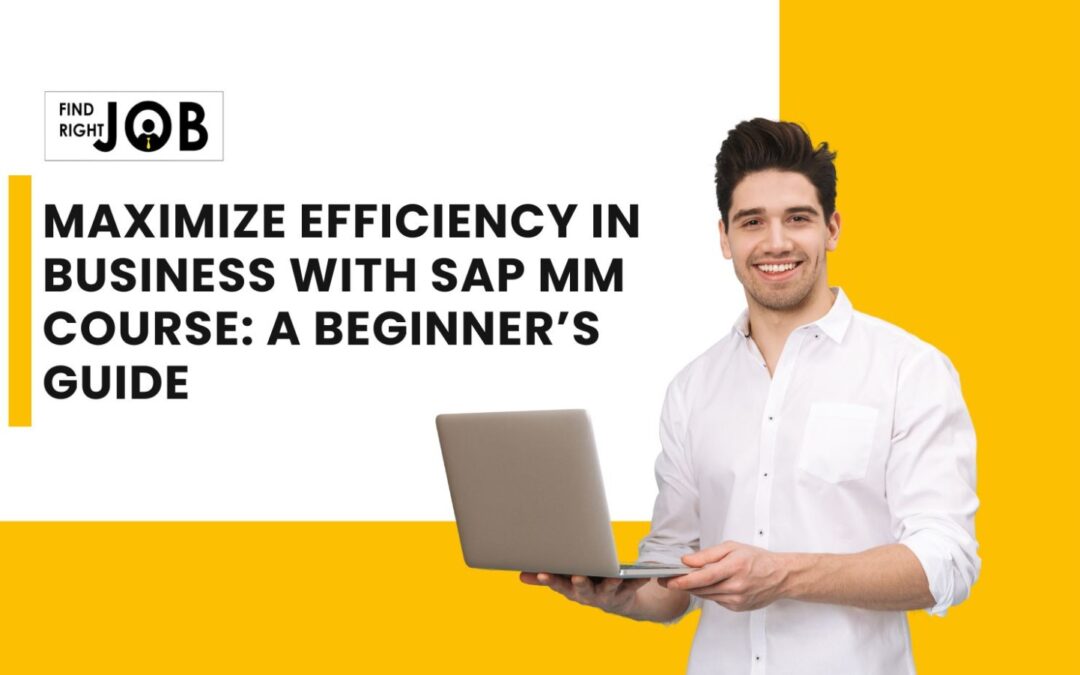A SAP MM course is a complete study, which is a complete part of SAP ERP systems. It compasses the whole material lifecycle from procurement to reserve management, added with SAP modules like SD, WM, and PP. The learner will study managing material master data, creating purchase demand, and purchase orders, and processing goods receipts and statement verification. It also includes inventory and consumption-based planning. At the end of this course, learners can configure and manage material flows, optimizing procurement and reserve processes. They make sure that SAP modules work well together and can manage real-world challenges with hands-on experience. This sets them up to take up positions like SAP MM expert or functional analyst in companies.
SAP and SAP MM
- SAP MM: The SAP MM course was added with elements like SAP SD, SAP WM, SAP PP, and SAP FI.
- Common Terms: Master data, transaction data, departmental planning, document types, etc.
Master Data Management
- Material Master Data: They create material master records, views, and types (Raw Material, Finished Goods, Semi-finished Goods).
- Merchant Master Data: Setting up merchant accounts, information, groups, and payment terms.
- Source List: Creating and managing purchasing information to records and source lists for materials.
- Batch Management: Handling material in batches this is highly main in the medical or chemicals industries.
Material Procurement Process
- Purchasing Request: Creating and processing PRs, automatic formation of PR.
- Request for References: Creating a request for references, merchant selection, and references.
- Purchase Order: Creation, types of purchase orders, standard, framework, contract, and purchase order release plan.
- Goods Receipt: Good receipt process, reserve updates, stock types, and valuation of goods received.
- Invoice Verification: Understanding the three-way match, purchase order, goods receipt, and invoice, and how to handle discrepancies.
Reserve Management and Stock Control
- Stock Types: Free stock, good stock, blocked stock, distribution stock, etc.
- Physical Reserve: Cycle counting, inventory differences, and posting corrections.
- Stock Valuation and Accounting: Various methods, and their effects on the financials.
Procurement Process in Detail
- Outer Procurement Process: How to deal with outer suppliers, managing purchase orders, goods receipt, and invoice processing.
- Subcontracting: Sending materials to a merchant for processing or assembly.
- Third-Party Order Processing: How to process orders where a third-party merchant delivers the goods directly to the customer.
SAP MM Course Fees
The cost of SAP MM course training in India depends upon the institution, online or offline, and the level of training. But, here is an idea of what to expect from them:
- Online Training
Online Courses: ₹15,000 – ₹40,000
Trainer-led online classes between ₹25,000 – ₹60,000 depending on the platform and trainer.
- Classroom Training:
The normal range of classroom training and centers varies between ₹30,000 to ₹1,00,000. The time duration is (4-6 weeks) and the reputation of institutes plays an important role.
- Advanced Courses
Advanced modules in SAP MM or specialized training might cost more, depending upon the type of course. Which may have hands-on projects, and certifications, or may be united with other SAP modules.
The courses by many institutes can be taken to include SAP MM with other SAP modules.
Conclusion
The SAP mm course provides complete knowledge of materials management, including procurement, reserve control, and merchant management. Mastering these concepts enables the learner to streamline business operations skillfully to improve ability and reduce cost. This course further helps participants manage purchasing processes, track reserve control, and engage in successful supplier relationships. The SAP mm course applies practical applications and real-world examples to prepare participants for real-world challenges. As well as adding their career options in the field of SAP.

